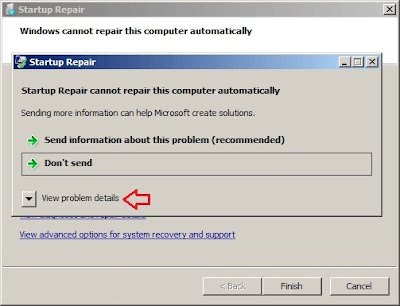All of us are aware that Hacking is really a endless subject and we all keep learning new things everyday. There is a question " What are essential skills to become a Master Hacker?" which many of my friends keep asking me and from last last year I was thinking about it and finally after 5 months of thinking I have gathered almost everything that is essential to become a Master Hacker.
As Hacking is itself is most skilled Information Technology art that requires very deep knowledge of Information Technology and my final conclusion after thinking five months is that, one must master may skills. Today I will be sharing all those skills that one need to be a Master Hacker. These skills would be a base on behalf of which you can prepare for future.
As per my personal experience there are 14 skills that I think one must have to become a master hacker. I am listing all these skills below :
1. Basic Computer Skills
It probably goes without saying that to become a hacker you need some basic computer skills. These skills go beyond the ability to create a paint file or cruise the Internet. You need to be able to use the command line in Windows, edit the registry, and set up your networking parameters as these are the basic parameters to start the journey to become a master hacker.
2. Networking Skills
Networking skills are among the basic requirements for performing a hack. As Hacking includes exploiting technologies and to exploit these technologies we need to know them well. Here is the list of network technologies that we need to learn.
- DHCP
- NAT
- Subnetting
- IPv4
- IPv6
- Public v Private IP
- DNS
- Routers and switches
- VLANs
- OSI model
- MAC addressing
- ARP
3. Linux Skills
It is extremely critical to develop Linux skills to become a hacker. Nearly all the tools we use as a hacker are developed for Linux and Linux gives us capabilities that we don't have using Windows. The tools that can be used in Linux can never work on Windows.
4. Virtual Box
It is very necessary to know well about using Virtual Box and similar software. Ideally, you need a safe environment to practice your hacks before you take them out in real world. A virtual environment provides you a safe environment to test and refine your hacks before going live with them.
5. Security Concepts and Technologies
A good hacker must understands security concepts and technologies. The only way to overcome the roadblocks established by the security admins is to be familiar with them. The hacker must understand such things as PKI (public key infrastructure), SSL (secure sockets layer), IDS (intrusion detection system), firewalls, etc.
6. Wireless Technologies
In order to be able to hack wireless, you must first understand how it works. Things like the encryption algorithms (WEP, WPA, WPA2), the four-way handshake, and WPS. In addition, understanding such as things as the protocol for connection and authentication and the legal constraints on wireless technologies.
7. Scripting
Without scripting skills, the hacker will be relegated to using other hackers' tools as all hacking tools works with scripts. This also limits your effectiveness. Every day a new tool is in existence loses effectiveness as security admins come up with defenses.
8. Database Skills
It is very usual and common that hackers do everything just to access database which admins are protecting with the help of several security measures. To be a good hacker you need to learn and understand databases. This includes the SQL language. I would also recommend the mastery of one of the major DBMS's such SQL Server, Oracle, or MySQL.
9. Wireshark or Tcpdump
Wireshark is the most widely used sniffer/protocol analyzer, while tcpdump is a command line sniffer/protocol analyzer. Both can be extraordinarily useful in analyzing TCP/IP traffic and attacks.
10 Advanced TCP/IP
The beginner hacker must understand TCP/IP basics, but to rise to the intermediate level, you must understand in intimate details the TCP/IP protocol stack and fields. These include how each of the fields (flags, window, df, tos, seq, ack, etc.) in both the TCP and IP packet can be manipulated and used against the victim system to enable MitM attacks, among other things.
11. Cryptography
Although one doesn't need to be a cryptographer to be a good hacker, the more you understand the strengths and weaknesses of each cryptographic algorithm, the better the chances of defeating it. In addition, cryptography can used by the hacker to hide their activities and evade detection.
12. Reverse Engineering
Reverse engineering enables you to open a piece of malware and re-build it with additional features and capabilities. Just like in software engineering, no one builds a new application from scratch. Nearly every new exploit or malware uses components from other existing malware.
13. Forensics
To become good hacker, you must not be caught! You can't become a pro hacker sitting in a prison cell for 5 years. The more you know about digital forensics, the better you can become at avoiding and evading detection.
14. Problem-Solving Skills
A hacker is always coming up against seemingly unsolvable problems. This requires that the hacker be accustomed to thinking analytically and solving problems. This often demands that the hacker diagnose accurately what is wrong and then break the problem down into separate components. This is one of those abilities that comes with many hours of practice.





























